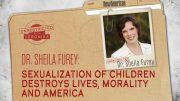
Nick Balzano, the President of the Allenton, Pennsylvania, chapter of the Service Employees International Union, told the Allentown City Council on Tuesday that his union may file a grievance against the city for allowing Kevin Anderson, a Boy Scout working on his Eagle Badge, to clear a 1,000-foot walking and biking path at Kimmets Lock Park.
In his statement, the union president said that his organization would be looking at the “Cub Scout or Boy Scout who did the trails.”
Balzano stated his concern was that the city had just laid off 39 of his union members and that these people should be doing the work done voluntarily by Anderson. Allentown, like many local governments, has been compelled to freeze hiring or even lay off workers in many departments.
The reaction to Balzano’s threatened grievance was swift and uniform. Mayor Palowski said that he hoped that the civically minded actions of the Boy Scouts would not be threatened by a union greivance. Congressman Dent, who represents Allentown in his district, asked Balzano to apologize to the Boy Scouts and to the public. Even Matt Nerzig, a spokeman for the SEIU, criticized Balzano’s remarks as “completely unauthorized and insensitive.” Balzano has indicated that he “might let this one go,” meaning that the local SEIU may not press the issue of young Mr. Anderson doing volunteer work at the park.
In the murky area of public employees unions, it is far from clear how much these unions can form a legal monopoly on activities that would otherwise be considered public-spirited voluntary actions of concerned citizens. This is complicated by the various areas of private life into which government employees work in what have traditionally been volunteer activities.
As one example, in much of rural America, fire services are provided by volunteer fire departments. The men and women who risk their safety to provide an indispensable service that the modest resources of rural local governments could not provide. Unlike the work of young Mr. Anderson, the Scout who cleaned up park trails, these volunteers engage in a work very closely connected to essential government services.
If in one of these rural fire districts, a union organizer succeeds in forming a labor union, would a contract by that union with the local rural government prevent volunteers from working to help extinguish fires in their neighbor’s homes? Because of the spreading danger of this sort of fire, could a union agreement prevent homeowners from taking actions to protect their residences and their families?
Or, suppose, instead of a Boy Scout, a group of neighbors agreed to do volunteer work to help police local parks from nefarious activities so that it would be a wholesome place for families to bring young children. Although police officers or park department employees could do this, as part of their official duties, could an FOP contract with the police department or an SEIU contract with the park department prevent public-spirited neighbors from working together to help make their local park safe?



